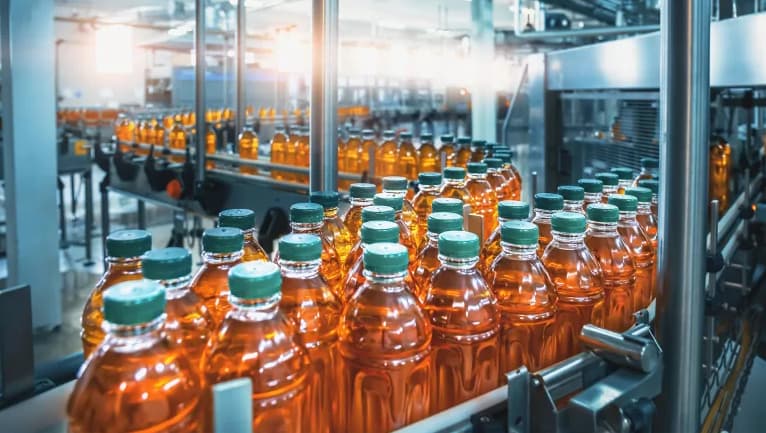Egypt’s industrial sector has been showing increased reluctance in manufacturing containers used in packaging juices.
Ibrahim Salut, director of sales at Tulip for Printing & Industry said that most of the local packaging companies shy away from manufacturing juice containers, attributing it to shortage in local raw materials which forces many to go in for costly imported raw materials which results in low profit margins. He added that there is only one company in Egypt that is specialized in manufacturing and printing such packaging containers and supplying them to the local market.
Muhammad al-Fishawy, owner of a plastic factory, said that the raw materials used in the manufacture of cartons and plastic juice containers, such as polyethylene (PE), which covers the inner layer of carton packaging, and polyethylene terephthalate (PET), are imported from abroad at high prices.
He added that the manufacturing process includes multiple stages, such as merging the cardboard layers using high and advanced technology in addition to printing, and conducting treatment processes for the inner layers and making them more resistant to bacteria, which makes it a very expensive industry.
Al-Fishawy explained that the price of a single juice packaging production line exceeds $5 million. As these are mostly imported from Switzerland from global leaders such as BOBST, one of the most famous Swiss companies supplying juice packaging production lines, the cost factor presents a major obstacle for manufacturers to invest their money.
Abdullah Mohamed, director of El Majd Plast, manufacturers of plastic juice containers, said that the price of plastic raw materials used in the manufacture of juice containers increased during the past two years by 73%, with the price per ton ranging between EGP 40,000-52,000, compared to EGP 14,000 in 2019.
He added that successive crises such as the coronavirus pandemic, the Russia-Ukraine war, and the cessation of imports are among the most prominent reasons for the rise in prices, in addition to disruptions in global supply chains.
Mohamed said that the price had seen a dip during the current period by EGP 2000 due to the partial opening of import operations. He also pointed out that the plastic raw material used in the manufacture of juice containers is PET, which is unavailable in Egypt, and are imported entirely from China and India.
He also stated that the profit margins of El Majd was around 15% of the total cost of production in 2019, but with the global and local crises and market stagnation, the company reduced this to range between 5-10% in keeping with its packaging production.
According to him the profit margins of the company is estimated at EGP 5,000 per ton, while profits from packaging is estimated at 10 piasters during the current period, as this is calculated based on the packaging material, weight, and size.
